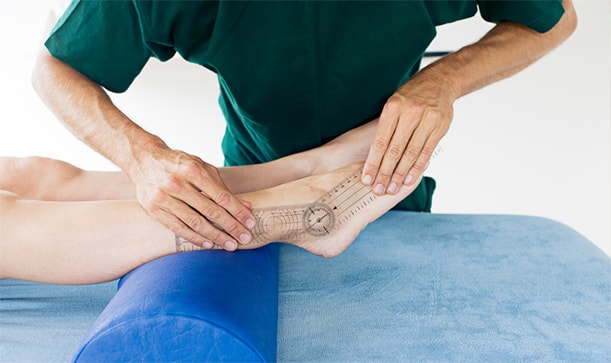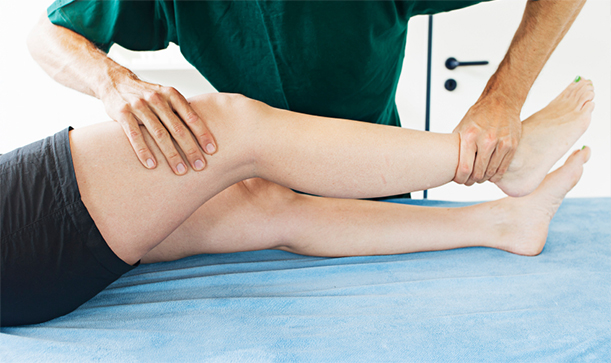CK Physiotherapy
AREAS COVERED
W7, W5, W13, Ealing, West London
57 Elthorne Avenue
Hanwell, W7 2JY
T: 020 8566 4113
M: 079 572 46185
E: info@ckphysio.co.uk
Location / Parking
We are situated in Hanwell, between Boston Manor Road and Northfields Avenue, south of the Uxbridge Road.57 Elthorne Avenue
Hanwell, W7 2JY
There are parking restrictions Mon - Fri 9-10am and 2-3pm. If you need a permit during this time please inform your therapist when you arrive. There are no parking restrictions at other times.
Opening Times
Please phone the number above during working hours to make an appointment. Our reception service will be happy to book your session.
London Underground / Bus Services
London Underground
10 min. walk from Boston Manor Tube Station.
15 min. walk from Northfields Tube Station.
Bus Service
E8, E3, E2, 207, 607, 83
Request Call Back
Our Blog
Epsom Salt In Everyday Life
By: admin Date: May 25th, 2023
After a challenging day at work or a rigorous workout, there’s often nothing better than a warm, relaxing bath to help ease muscle tension and calm a busy mind.
If you’re a fan of a good soak, you might already be familiar with Epsom salt as a popular addition to your bath. Many athletes, celebrities, wellness gurus, and medical professionals are vocal in their support of Epsom salt for promoting relaxation and as a solution for aching joints and muscles.
Yet, not everyone is convinced, with some medical experts believing an Epsom salt bath delivers nothing more than a placebo effect.
In this article, we'll look at what Epsom salt actually is, review the varying opinions on the effectiveness of Epsom salt baths, and explore the potential health benefits.
What is Epsom salt?
Epsom salt has been used since the 17th century and gets its name from the small town of Epsom in England where it was first discovered.
The springs in the town of Epsom are naturally rich in minerals and when the water from the springs evaporates, it leaves small crystal-like deposits. It’s these deposits that have become known as Epsom salt.
The scientific name for Epsom salt is magnesium sulphate, and the chemical elements it contains are magnesium, sulphur, and oxygen.
You’re probably familiar with the benefits that oxygen has in our daily lives (we wouldn’t be alive without it!). But you might be less familiar with the role that magnesium and sulphur play in our bodies.
Magnesium
Magnesium has a wide range of different functions within our bodies - helping us maintain healthy muscle and nerve functions, ensuring efficient energy production, and improving our bone health and heart function.
Magnesium also plays an important role in helping with stress reduction, anxiety relief, and regulating our sleep.
Sulphur
Sulphur is another important chemical element for the healthy functioning of our bodies. It helps with the synthesis of protein and amino acids, and also in the production of collagen and keratin which support healthy skin, joints, bones, hair, and nails. Sulphur is also important for a lot of detoxification processes in the body.
With Epsom salt being so rich in magnesium and sulphates, it’s easy to understand why there are so many powerful advocates for the potential health benefits of Epsom salt baths.
However, the big point of debate is whether these elements can be absorbed transdermally through the skin.
The great Epsom salt debate
For complete clarity, there’s no debate around the fact that both magnesium and sulphur are important for your body. There’s also no debate that Epsom salt is incredibly rich in both important elements.
The area where there seem to be more differences of opinion is whether soaking in an Epsom salt bath is an effective way for your body to increase its magnesium and sulphate levels.
Historically, there hasn’t been a wide body of scientific evidence to prove that magnesium sulphate can be absorbed by the skin. This is probably most succinctly summed up by a quote from Mark Moyad, Director of Complementary and Alternative Medicine at the University of Michigan who states: “You will find some benefits of magnesium given intravenously or orally, but the data on soaking is weak and not conclusive”.
However, on the other side of the argument is a study conducted by the University of Birmingham in which 19 subjects took regular salt baths every day for 12 minutes, for a period of 7 days. At the end of the study, results concluded that bathing in Epsom salts can increase magnesium and sulphate levels in the body.
This study was further supported by an experiment by the University of Queensland which found that magnesium can be absorbed by the skin through your hair follicles.
So although some medical professionals are yet to be convinced, there is some scientific evidence to support the fact that Epsom salt baths can be beneficial to your health.
And especially with there being little to no health risks associated with magnesium sulphate home use - from our perspective, there’s no harm in incorporating a long soak in a salt bath into your relaxation or post-workout routine.
Everyday benefits of Epsom salt baths
The theory behind Epsom salt baths is that by adding a cup or two to a warm bath, the salts dissolve and release both magnesium and sulphate ions into the water.
As you soak, your skin absorbs the ions, helping to increase both magnesium and sulphate levels within the body. The magnesium and sulphate ions are also reported to help with certain skin conditions.
There are wide range of health benefits that are associated with Epsom salt baths, including:
- Relieving the symptoms of athlete’s foot
- Treating toenail fungus
- Soothing bruises
- Easing the symptoms of gout
- Exfoliating the skin
- Reducing foot odour
- Reducing anxiety
- Promoting better sleep
But from a physiotherapy perspective, perhaps the most significant reported benefits of Epsom salt are in its potential as a muscle pain home remedy and a solution for aching joints
Epsom salt baths for muscle soreness and joint relief
We’d consider it quite unlikely that any licensed physiotherapist would recommend an Epsom salt bath as the primary solution for any sore or injured muscles or aching joints.
However, as a complementary muscle pain home remedy treatment for patients, it can be incredibly effective.
By including Epsom salt baths as a complementary part of a physiotherapy plan, patients can experience an improvement in their symptoms and speed up the recovery process.
Relaxing muscles
One of the most significant advantages of Epsom salt baths in physiotherapy is their ability to help relax muscles.
As the magnesium in Epsom salt is absorbed through the skin, it can help regulate nerve and muscle function, which can reduce and ease muscle tension and spasms.
Relieving stiffness and soreness
Epsom salt baths can also be highly effective as a way of relieving stiffness and soreness in both the muscles and joints of patients.
The sulphates present in Epsom salt can contribute to the formation of joint proteins, essential for maintaining healthy joint function and structure.
By soaking in an Epsom salt bath, patients can experience a significant reduction in stiffness, leading to increased mobility - making it a great complementary solution for aching joints
Speeding up recovery
Incorporating Epsom salt baths into a patient's treatment plan can also speed up the recovery process.
Inflammation is the body’s natural response to injury, and it’s something we come across commonly as physiotherapists.
Both magnesium and sulphur have anti-inflammatory properties, helping to reduce inflammation in muscles and joints.
By lowering inflammation levels with the help of an Epsom salt bath, patients can heal more quickly and experience less discomfort during their recovery journey.
Balancing home remedies with professional medical advice
Both anecdotal and scientific evidence lends itself to the fact that Epsom salt baths can be effective as part of a comprehensive physiotherapy plan, helping to relax muscles, relieve stiffness, and speed up recovery.
There are also a wide range of additional health benefits to bathing in Epsom salt, including a reduction in anxiety, better quality of sleep, and soothing bruises.
However, even though Epsom salt baths can be an effective muscle pain home remedy and a solution for aching joints, they should not replace professional medical advice.
If you’re suffering from any physical discomfort or pain for a prolonged period of time, it’s important to seek guidance from a medical professional.
At CK Physiotherapy, we have a team of licenced, chartered physiotherapists operating in the Ealing area that are able to support you with any recurring pain or injury that you might be suffering from.
Get in touch on 020 8566 4113 and one of our team will be happy to arrange an initial consultation, before we create an individualised treatment plan.
Further reading:
7 Things You Probably Didn't Know About Epsom Salt. Retrieved from https://health.clevelandclinic.org
Epsom Salt Research. Retrieved from https://www.medicalnewstoday.com
Epsom Salt Bath. Retrieved from https://www.webmd.com
Epsom Salt Bath. Retrieved from https://www.healthline.com/health
Epsom Salt Uses and Benefit. Retrieved from https://seasalt.com
Health Benefits of Epsom Salts. Retrieved from https://www.realsimple.com/health
Epsom Salts. Retrieved from https://www.byrdie.com
Do Epsom Salt Baths Actually Do Anything. Retrieved from https://elemental.medium.com
Report on Absorption of Magnesium Sulfate. Retrieved from https://www.epsomsaltcouncil.org





